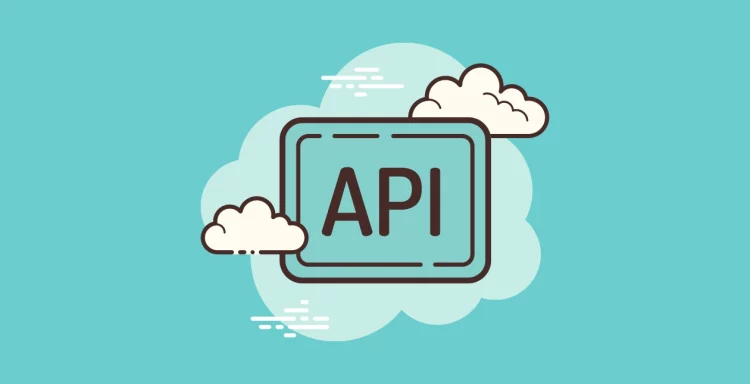Ever opened an app like Google Maps and wondered how it instantly pinpoints your location and suggests the quickest way out when you’re lost? That magic happens thanks to APIs working quietly behind the scenes.
APIs, or Application Programming Interfaces, help different software applications talk to each other and exchange data securely. But here’s the thing — if these APIs don’t work properly or aren’t tested well, it can lead to glitches, slow performance, or worse, data leaks.
In fact, according to a recent report by Gartner, by 2025, over 90% of web applications will expose more attack surfaces through APIs than the user interface itself. This makes reliable API testing not just important, but necessary.
The good news? You don’t have to test them manually or guess what’s going wrong. There are some powerful API testing tools out there designed to make this job easier, faster, and more accurate.
In this article, I’ll walk you through some of the best API testing tools you can start using today.
What is an API?
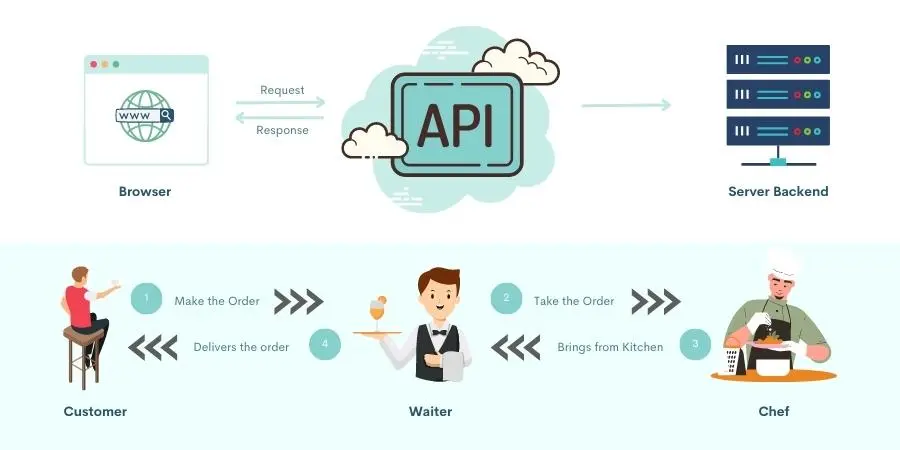
API testing is a type of software testing that focuses on verifying whether Application Programming Interfaces (APIs) work as expected. Instead of testing the visual parts of an application (like buttons, forms, or links), API testing checks the communication between different software systems, services, or applications.
In simple terms, an API allows two different programs to talk to each other, and API testing makes sure that the conversation happens smoothly, securely, and correctly.
Why is API Testing Important?
In today’s software development, most applications rely heavily on APIs to deliver services and exchange data. Whether it’s a mobile app pulling user data from a server or a website showing real-time stock prices, APIs are everywhere.
If APIs aren’t tested properly, it can lead to:
- Broken app features
- Slow performance
- Inaccurate data
- Security vulnerabilities
According to Gartner, by 2025, more than 90% of web apps will expose more attack surfaces through APIs than the user interface, making API testing essential for application security and performance.
How API Testing Works
Unlike regular software testing, where you click buttons and see what happens on the screen, API testing works behind the scenes. It directly tests the communication between different software systems by sending requests to an API and checking the responses it sends back.
Let’s make it simple:
When you send a request to an API (like asking Google Maps for directions), the API responds with some data (like your route and traffic updates). API testing checks:
- If the response is correct
- If the response is received on time
- If the data is accurate and in the right format
- If errors are handled properly
Basic Steps in API Testing
Here’s how API testing typically works:
1. Define the API Request
Decide what you want to test — like a GET request to fetch data, a POST request to add data, or a DELETE request to remove data.
2. Send the API Request
Use an API testing tool (like Postman or SoapUI) to send the request to the server.
3. Receive the Response
The API will return a response, usually in JSON or XML format.
4. Validate the Response
Check:
- Status codes (like 200 for success, 404 for not found, 500 for server error)
- Response time (how fast the API responds)
- Data accuracy and format
- Error messages and validations
5. Repeat and Automate
Automate common or repetitive tests and run them regularly, especially during software updates.
Common Protocols Used in API Testing
Most API tests happen over standard web protocols like:
- HTTP/HTTPS
- REST (Representational State Transfer)
- SOAP (Simple Object Access Protocol)
- GraphQL
- JMS (Java Message Service)
- MQ (Message Queue)
These protocols define how information is sent and received between systems.
List of Best API Testing Tools in 2025
| Tool | API Support | Automation | Collaboration | Pricing | Beginners, teams, and quick testing |
|---|---|---|---|---|---|
| Postman | REST, SOAP, GraphQL | Yes | Yes | Free, Paid from $14/user/mo | Beginners, teams, quick testing |
| SoapUI | REST, SOAP | Yes | Limited | Free, Pro from $899/year | Enterprise, SOAP-heavy projects |
| Katalon Studio | REST, SOAP, GraphQL | Yes | Yes | Free, Paid from $25/mo | Automation testers, all-in-one |
| Apigee | REST, SOAP, GraphQL | Yes | Yes | Custom pricing (Enterprise) | Large enterprises, API management |
| JMeter | REST, SOAP | Yes | No | Free (Open-source) | Load, performance, stress testing |
| Rest Assured | REST | Yes | No | Free (Open-source) | Java developers, BDD frameworks |
| Hoppscotch | REST, GraphQL, WebSockets | No | Limited | Free | Lightweight, browser-based testing |
| Assertible | REST | Yes | Yes | Free, Paid from $25/mo | Automated CI/CD API monitoring |
| ReadyAPI (SmartBear) | REST, SOAP | Yes | Yes | Paid from $749/year | Enterprise security, performance |
| Swagger Inspector | REST | No | Limited | Free | Quick, simple endpoint testing |
1. Postman
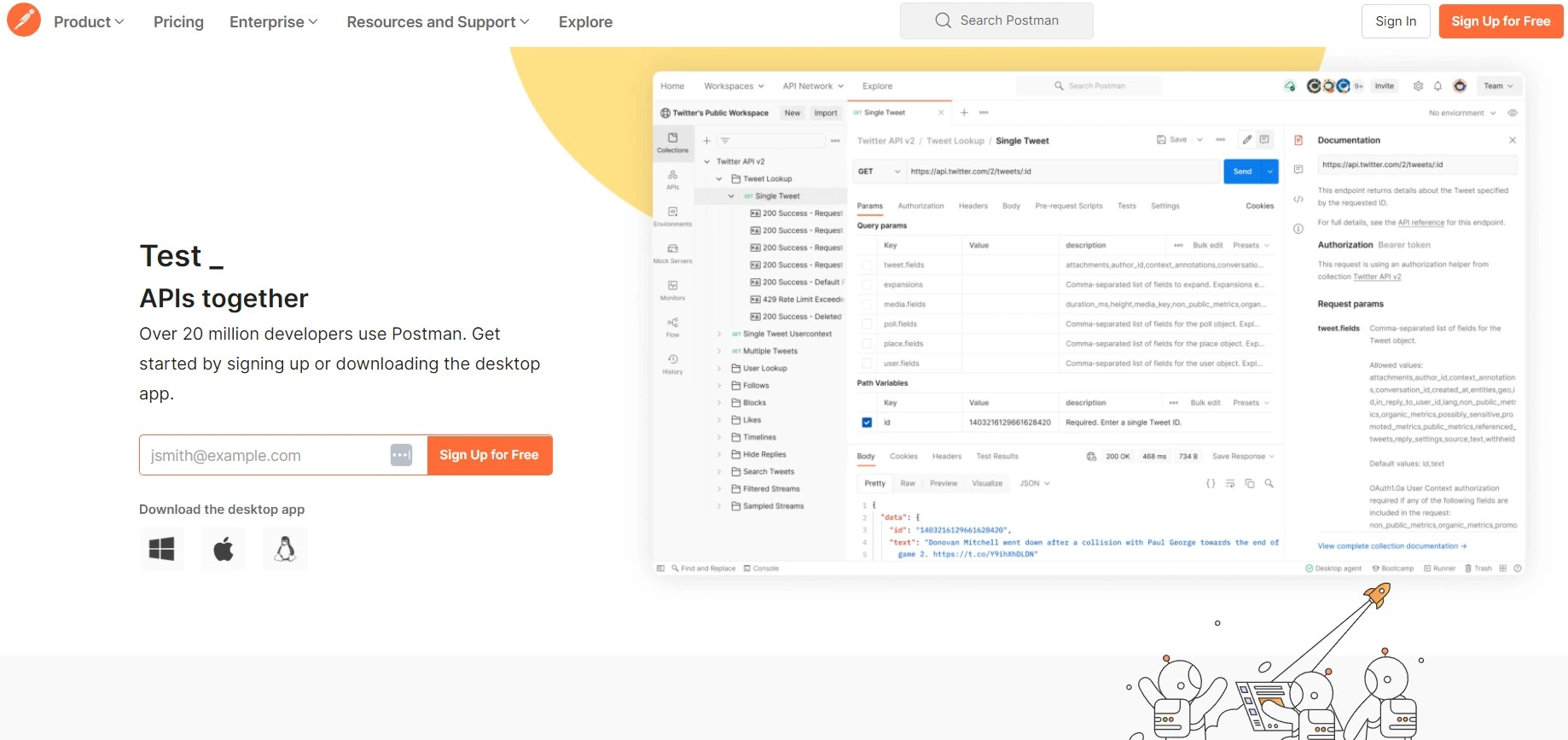
Postman is a user-friendly API testing platform that simplifies creating, testing, and monitoring APIs. It supports REST, SOAP, and GraphQL APIs and offers features like automated testing, team collaboration, and API collections.
Ideal for beginners and experienced developers alike, it’s known for its clean interface, free plan, and wide community support.
Pricing: Free, with paid plans starting at $14/user/month
Key Features:
- Support for REST, SOAP, and GraphQL
- Automated test scripts using JavaScript
- API collections for organized testing
- Collaboration features for teams
- Built-in reporting and monitoring
- Simple, intuitive UI
- Free plan available
- Excellent community support
- Limited advanced automation features
2. SoapUI
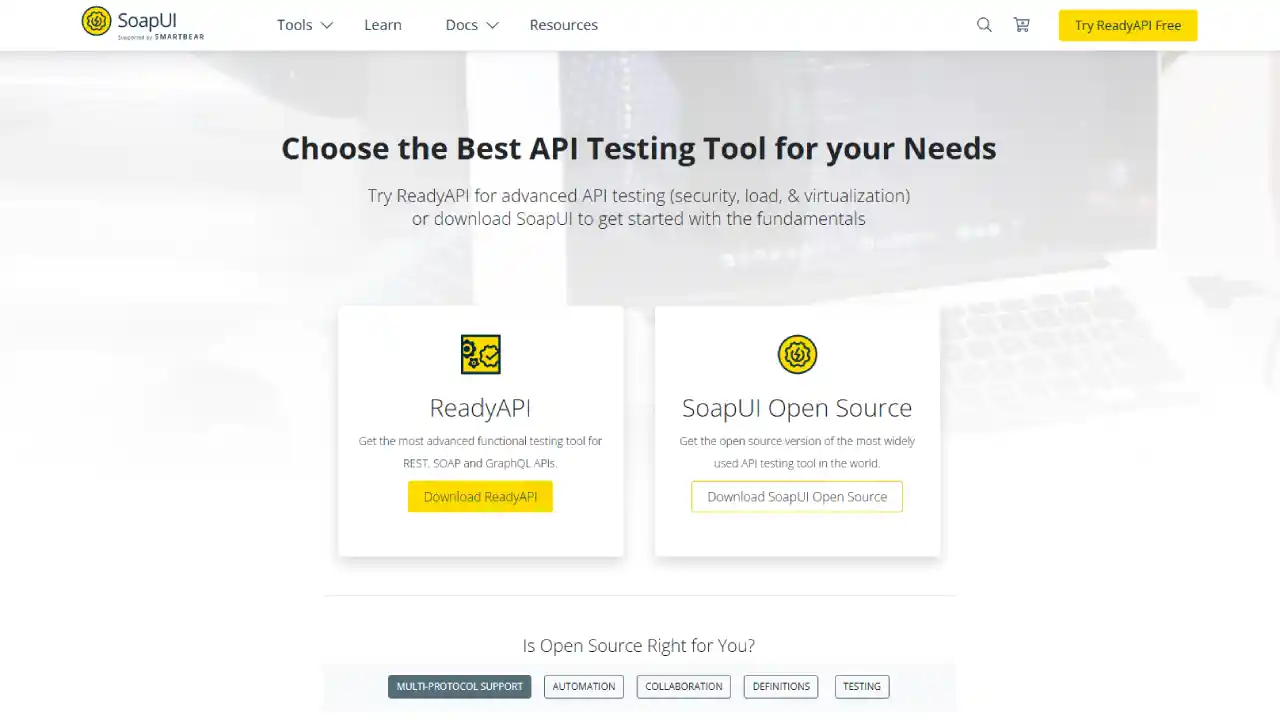
SoapUI is a powerful open-source tool designed for testing REST and SOAP web services. It supports advanced functional, security, and performance testing, along with data-driven testing and API mocking.
Its enterprise version, ReadyAPI, adds enhanced features for large projects. Ideal for enterprise teams handling complex APIs and compliance-heavy environments.
Pricing: Open-source version available, Pro version starts at $899/year
Key Features:
- Drag-and-drop test creation
- Data-driven testing
- Supports API mocking
- Advanced security testing options
- Comprehensive feature set for enterprise users
- Great for SOAP-based APIs
- Data-driven test support
- Can feel outdated and complex for beginners
- Resource-heavy for large projects
3. Katalon Studio
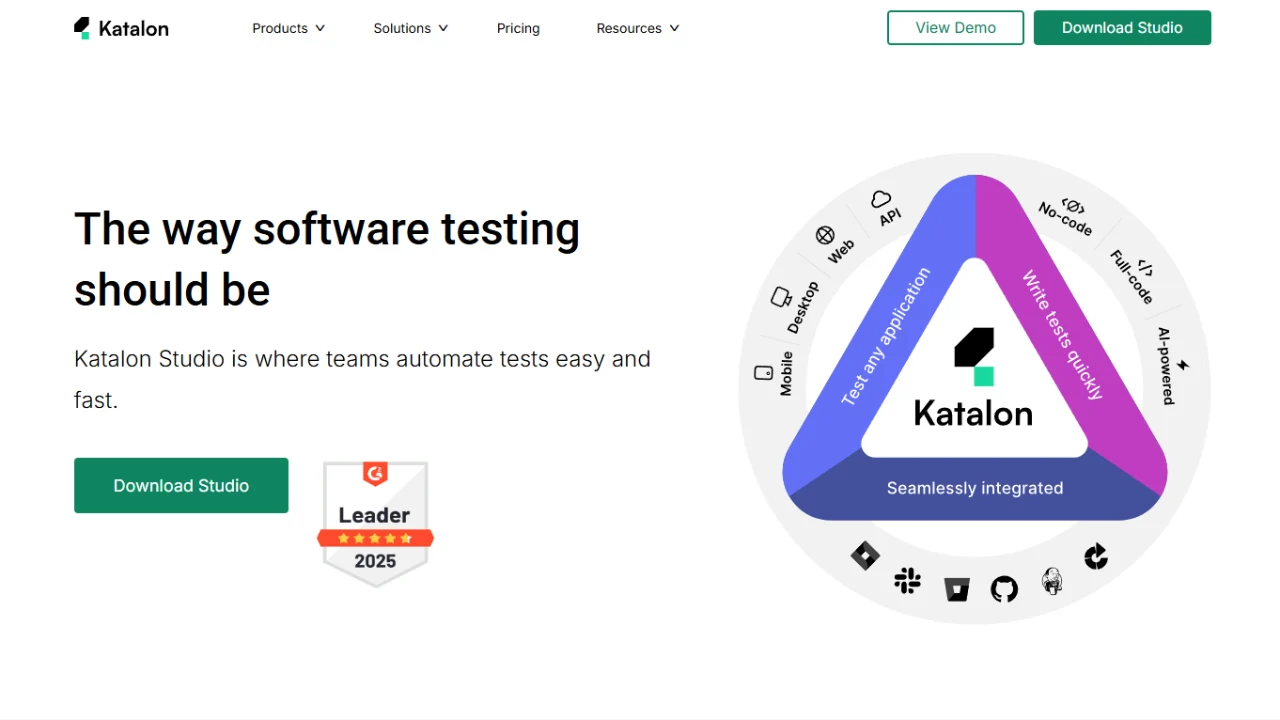
Katalon Studio is an all-in-one automation tool supporting web, mobile, desktop, and API testing. It offers no-code and low-code options, REST and SOAP API support, and integrations with Jenkins, Docker, and Jira. Its test recorder, dashboard, and reporting tools make it suitable for both small teams and enterprise workflows.
Pricing: Free version available, paid plans start at $25/month
Key Features:
- Supports REST, SOAP, and GraphQL
- Built-in test recorder and object spy
- CI/CD integration
- Test result dashboard
- No coding needed for basic tests
- Integration with Jenkins, Jira, and Docker
- Strong community support
- Advanced features locked behind paid plans
- Limited free version
4. Apigee
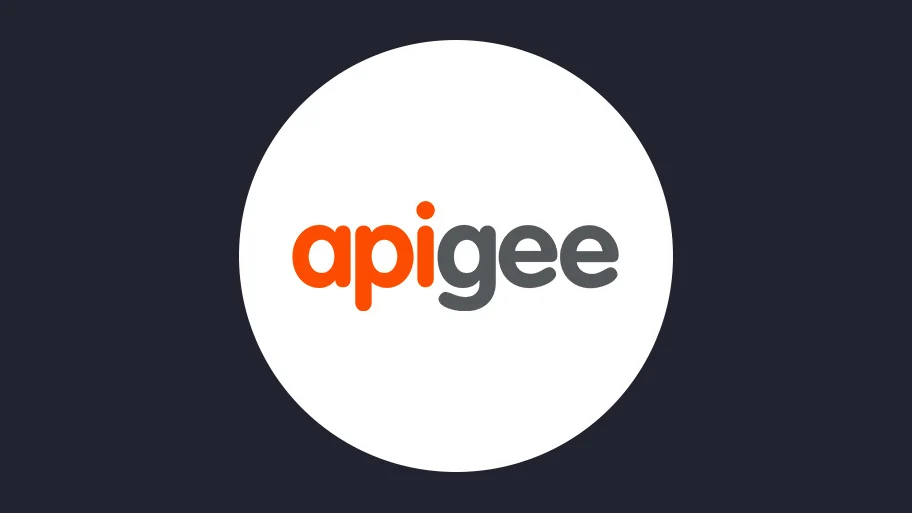
Apigee, from Google Cloud, is an enterprise-grade API management and testing tool. It provides API traffic monitoring, security management, quota control, and real-time analytics.
Ideal for large-scale projects, it supports multi-cloud, hybrid cloud environments, and full API lifecycle management, offering strong scalability, analytics, and enterprise security features.
Pricing: Contact sales for custom pricing
Key Features:
- Full API management suite
- Security and quota management
- Real-time API monitoring
- Multi-cloud and hybrid cloud support
- Ideal for large, enterprise projects
- Detailed analytics
- Strong security features
- Learning curve for beginners
- Pricey for small businesses
5. JMeter

Apache JMeter is a free, open-source performance testing tool with strong API testing capabilities. Supporting REST, SOAP, and various protocols, it handles load, stress, and functional API tests.
Highly customizable, it allows multi-thread simulation and real-time reporting, making it great for testing API performance under heavy user loads.
Pricing: Free (Open-source)
Key Features:
- Supports REST and SOAP services
- Load and stress testing capabilities
- Multiple thread simulation
- Reporting and graph generation
- Completely free
- Flexible and customizable
- Great for load testing
- Outdated UI
- Steeper learning curve
6. Rest Assured
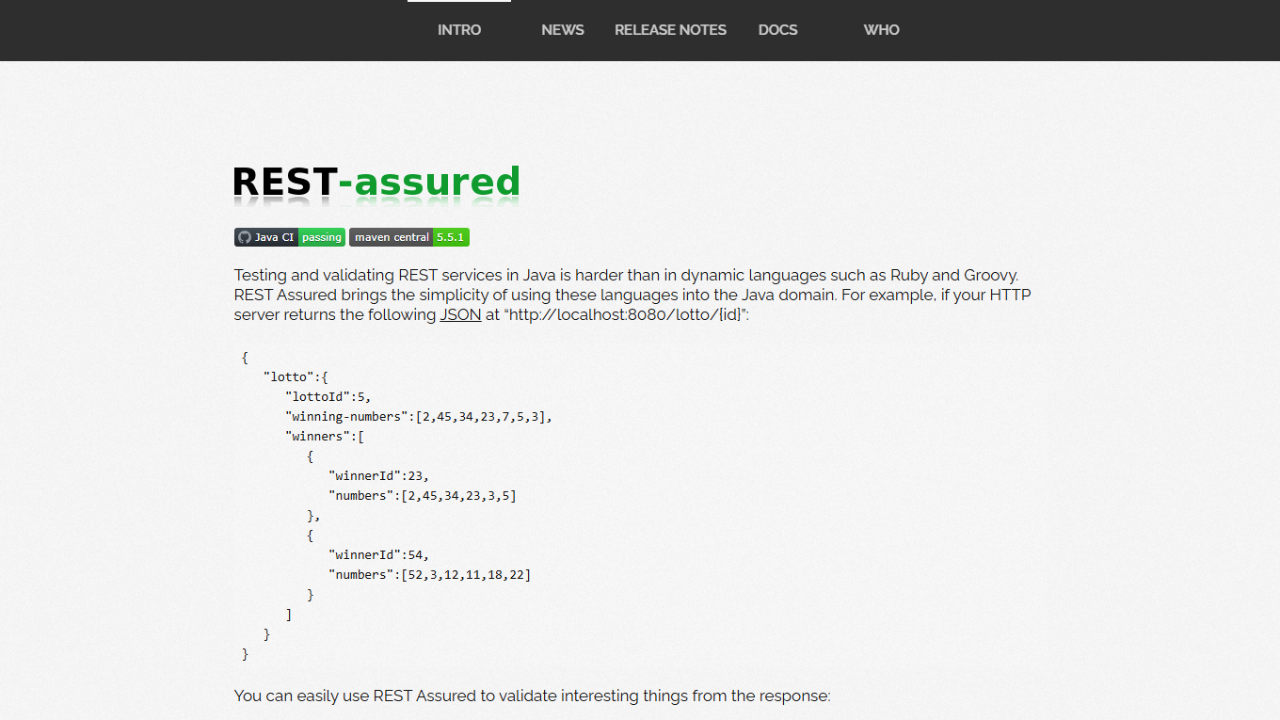
Rest Assured is a popular Java-based open-source library for testing REST APIs. It supports JSON, XML, and integrates seamlessly with Maven and Jenkins.
Known for its simplicity in writing readable tests for complex API requests, it’s favored by developers and testers working in Java environments and Behavior-Driven Development (BDD) workflows.
Pricing: Free (Open-source)
Key Features:
- Supports JSON and XML responses
- Seamless integration with Maven and Jenkins
- Built for Behavior-Driven Development (BDD)
- Powerful for automated tests
- Flexible for complex API scenarios
- Open-source
- Not suitable for non-programmers
7. Hoppscotch

Hoppscotch is a lightweight, open-source API testing tool with a fast, minimalist, browser-based interface. It supports REST, GraphQL, and WebSockets, offering offline use and quick test sharing.
Best for developers seeking a simple, no-install solution for basic API testing, though it lacks the automation and advanced features of enterprise tools.
Pricing: Free
Key Features:
- REST, GraphQL, and WebSocket support
- Minimalist, responsive UI
- Browser-based tool with offline support
- Simple and fast
- Open-source and free
- No installation required
- Lacks advanced testing and automation features
8. Assertible
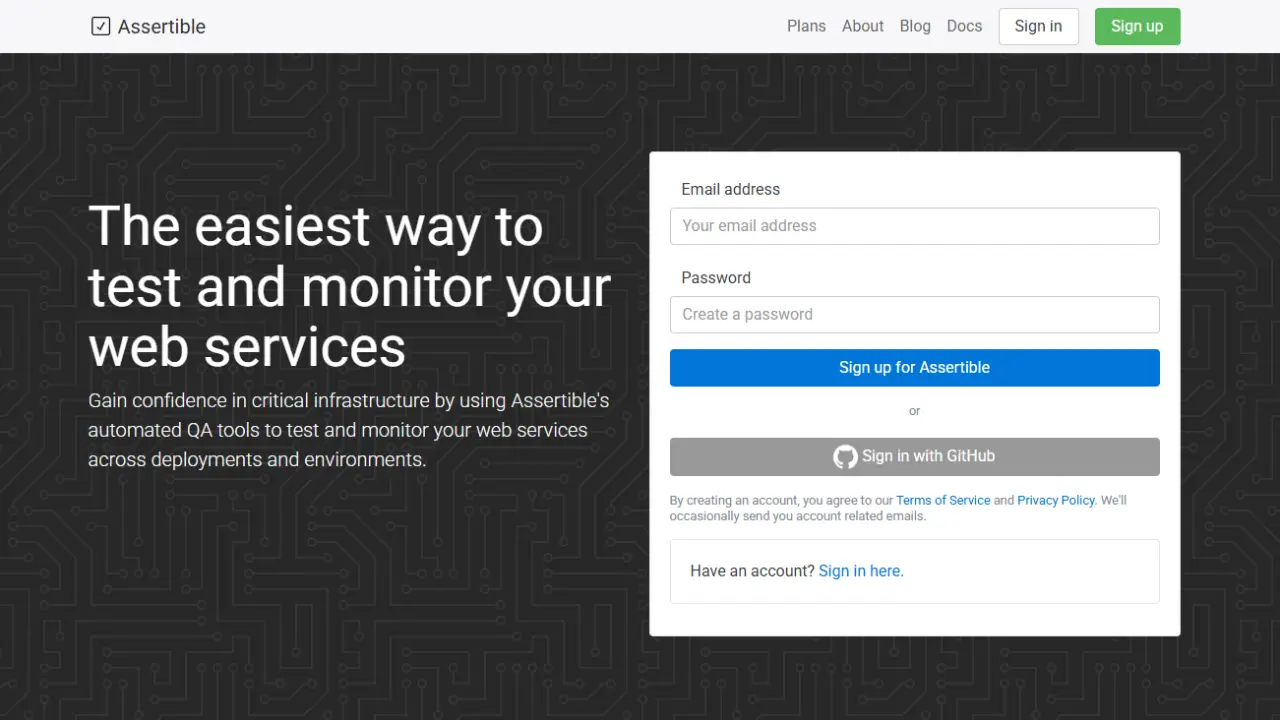
Assertible is a cloud-based API testing and monitoring tool focused on automation and continuous integration. It supports automated API tests, customizable assertions, and integrations with CI/CD pipelines.
With real-time reporting and alerts, it’s ideal for teams practicing DevOps and regression testing. A clean interface makes it beginner-friendly and team-friendly.
Pricing: Free plan available, paid plans start at $25/month
Key Features:
- Automated API testing and monitoring
- CI/CD integration
- Customizable assertions
- Reporting and alerts
- Simple interface
- Great for automated regression testing
- Good for small to medium projects
- Limited advanced features in the free plan
9. ReadyAPI (SmartBear)
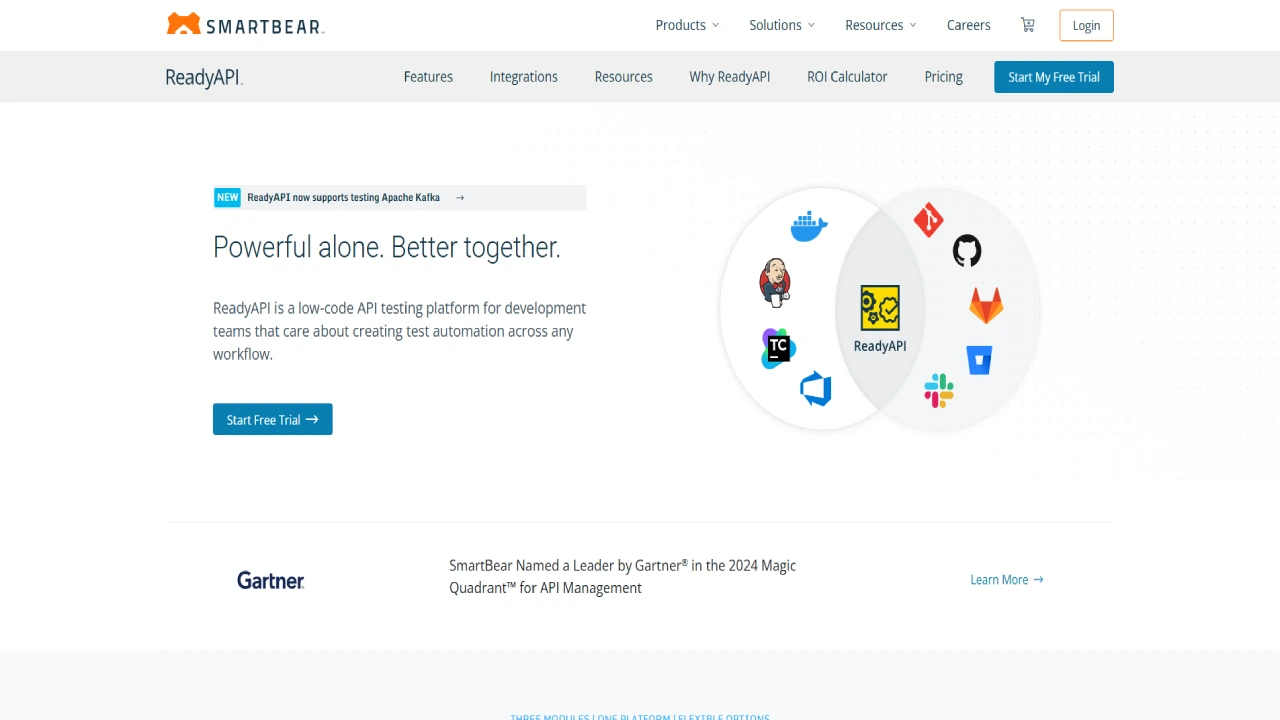
ReadyAPI by SmartBear is an enterprise-ready API testing suite that includes functional, security, and performance testing tools. It supports REST, SOAP, and data-driven testing, along with API virtualization and CI/CD integration.
Built for security-sensitive and large-scale projects, it offers deep analytics, automation capabilities, and broad protocol support for businesses.
Pricing: Starts at $749/year
Key Features:
- API functional, security, and performance testing
- Data-driven testing support
- CI/CD integration
- API virtualization
- Enterprise-ready
- Rich feature set
- Great for security and compliance-heavy projects
- Expensive for small businesses
- Requires training
10. Swagger Inspector
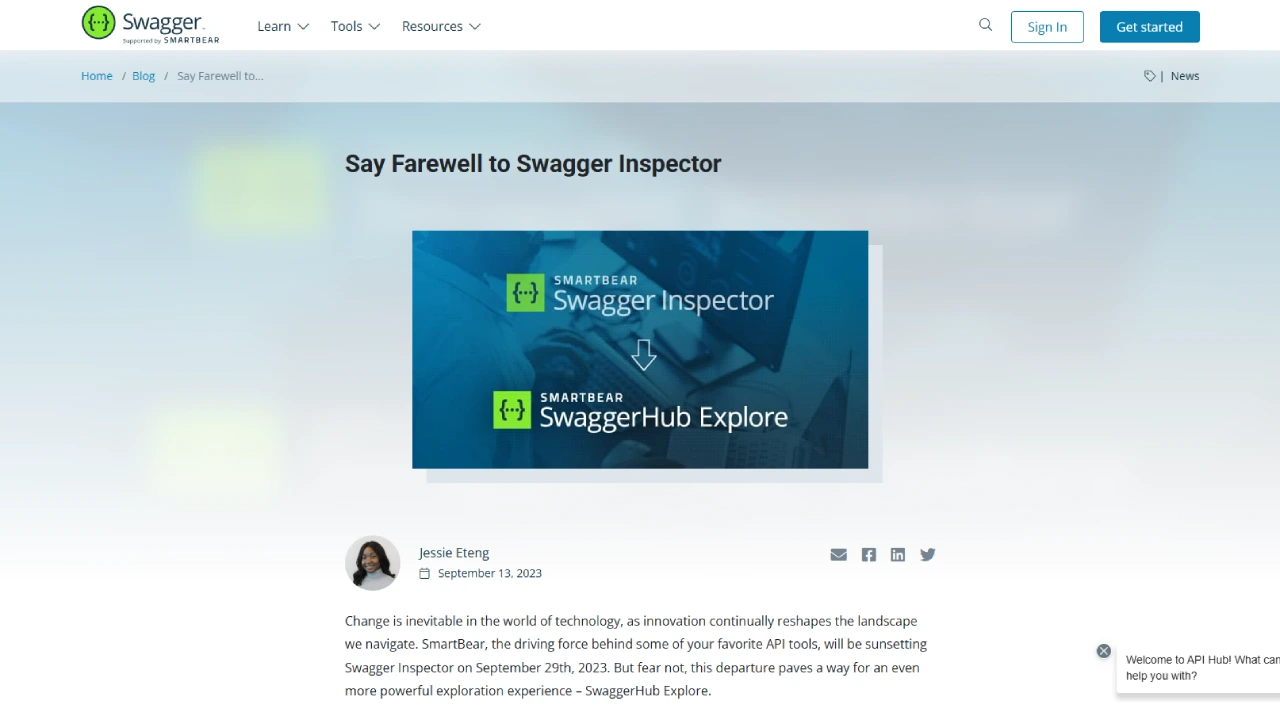
Swagger Inspector is a free, browser-based tool for testing REST APIs and generating OpenAPI documentation.
It enables users to quickly inspect API responses, validate endpoints, and produce API definitions for SwaggerHub integration. Ideal for developers needing a lightweight, no-install solution for simple API testing and documentation without advanced automation.
Pricing: Free
Key Features:
- No setup required
- Generate OpenAPI definitions
- Easy request inspection
- Free and browser-based
- Integrates with SwaggerHub
- Basic testing only
- No automation features
FAQs
What is an API testing tool?
An API testing tool checks the performance, functionality, and security of APIs by sending requests and analyzing responses, ensuring software systems communicate correctly without relying on a user interface.
Why is API testing important?
API testing ensures smooth software communication, detects bugs early, improves security, and verifies data exchanges, helping developers deliver stable, high-performing applications with reduced risks before they go live.
Which tool is best for API testing for beginners?
Postman is the most beginner-friendly API testing tool, offering an intuitive interface, easy request creation, API collections, and community resources, supporting REST, SOAP, and GraphQL without requiring advanced skills.
Can API testing tools handle performance and load testing?
Yes, tools like JMeter and ReadyAPI handle performance and load testing by simulating multiple requests, helping developers check how APIs perform under heavy traffic and demanding conditions.
Are there any free API testing tools available?
Yes, free API testing tools include Postman, JMeter, Rest Assured, Hoppscotch, and Swagger Inspector, offering essential features for testing APIs without requiring paid plans for basic use.
What types of APIs can be tested using these tools?
These tools support testing REST, SOAP, and GraphQL APIs, while some tools also handle WebSockets, messaging protocols, and multi-cloud API services, covering a wide range of software applications.
Can API testing be automated?
Yes, API testing can be automated using tools like Katalon Studio, Rest Assured, and Assertible, saving time, improving test accuracy, and supporting continuous integration and deployment workflows easily.
Which API testing tool is best for enterprise use?
Apigee and ReadyAPI are ideal for enterprises, offering advanced security, performance testing, real-time analytics, multi-cloud support, and seamless integration with CI/CD pipelines for handling complex, large-scale projects.
Do these tools support CI/CD integration?
Yes, tools like Postman, Assertible, and ReadyAPI integrate with CI/CD pipelines, allowing automated testing during build and deployment processes, improving development speed and reducing software release errors.
Conclusion
API testing plays a huge role in making sure apps and software run smoothly and securely. Whether you’re a beginner or working on enterprise-level projects, having the right API testing tool makes the job easier, faster, and more reliable. From simple tools like Postman to advanced options like ReadyAPI and Apigee, there’s something for every need and budget.
Take a little time to test out a few tools, see which one fits your workflow, and build a testing setup that keeps your APIs bug-free and your users happy.

